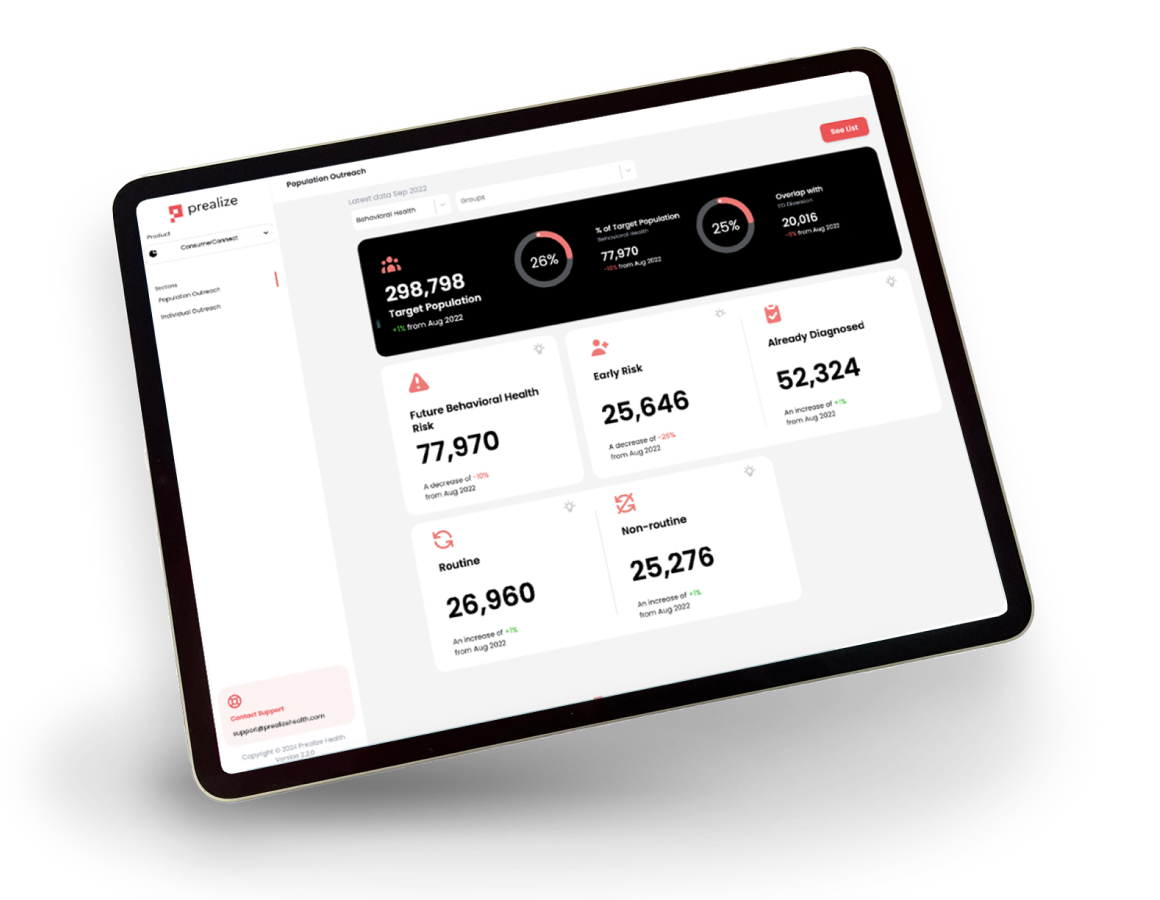
Ensuring Fairness in Healthcare AI: Why Gender and Age May Not Indicate Bias in AI Predictions
Artificial intelligence (AI) is transforming healthcare, offering advanced predictive models that help provide proactive care, improve patient outcomes, and optimize costs. With these advancements comes an important responsibility: ensuring fairness and not introducing bias in AI-driven predictions.
At Prealize Health, we take this responsibility seriously by continuously monitoring our AI models for statistically significant deviations across available protected characteristics, such as race and ethnicity.
One common concern in AI fairness is whether gender and age, two protected characteristics, influence predictions in a way that could lead to discrimination. While these characteristics are relevant for assessing bias in some healthcare contexts, they are not always applicable—especially when the patient population is inherently defined by gender and age factors.
Gender and Age in AI Predictions: A Context-Driven Approach
Take, for example, AI models designed to predict high-cost, complicated pregnancies. In this scenario, the population being analyzed consists solely of individuals biologically capable of pregnancy. Since the model is built within this defined group, gender and age do not serve as discriminatory factors—they are simply a reflection of a relevant medical patient cohort.
This illustrates a crucial point: fairness in AI is not about blindly excluding demographic variables but about understanding when they are and are not relevant. In cases like pregnancy-related care, the model isn’t making biased decisions based on age or gender; rather, it is operating within a biologically determined patient group.
Acknowledging Systemic Bias in Healthcare
While AI has the potential to reduce disparities, systemic bias still exists in healthcare delivery and the accrual of health benefits. Historical and structural inequities have led to disparities in access to care, treatment outcomes, symptom evaluation, and can be present in the data used to train predictive models. If not carefully managed, these biases can become embedded in AI models, perpetuating, rather than solving, inequities.
At Prealize Health, we recognize that technology alone cannot solve these deeply rooted issues. However, we are committed to leveraging AI in a way that promotes equity, ensuring that our models do not introduce or amplify biases that already exist in the healthcare ecosystem. This means continuously evaluating our predictions, refining our methods, and enabling a healthcare system where AI serves all patients fairly.
Our Commitment to Responsible AI in Healthcare
To uphold fairness and prevent unintended bias, we regularly monitor our AI models for statistically significant deviations in predictions based on protected characteristics. This ensures that our algorithms remain accurate and equitable across diverse patient populations. Our approach includes:
- Context-Aware Fairness: We recognize that certain characteristics may be naturally relevant in specific medical contexts, ensuring that models reflect biological and clinical realities rather than arbitrary biases.
- Ongoing Bias Audits: We systematically analyze model outputs to detect and address any potential introduction or amplification of biases.
- Transparent AI Practices: We remain committed to explaining how our models work and the steps we take to safeguard fairness in healthcare predictions.
Looking Ahead: AI That Works for Everyone
As AI continues to reshape healthcare, it is vital to build models that not only enhance patient care but also uphold responsible standards. By ensuring that protected characteristics, including gender and age, are applied appropriately, and never as discriminatory factors, we can create AI-driven healthcare solutions that are both fair and effective.
At Prealize Health, we believe that AI should empower all patients, regardless of their demographics. Through rigorous oversight and a commitment to responsible AI, we aspire to ensure that healthcare predictions remain accurate, equitable, and free from bias.
We invite you to join the conversation—how do you think AI can best ensure fairness in healthcare?Let’s collaborate to build a more equitable future.
Author
Sri Gopalsamy- Chief Technology Officer

Experience the Prealize Difference
We invite you to experience the transformative power of unparalleled accuracy. Request a demo today and see how Prealize can empower your organization to achieve better health outcomes, reduced costs, and a new era or proactive care.